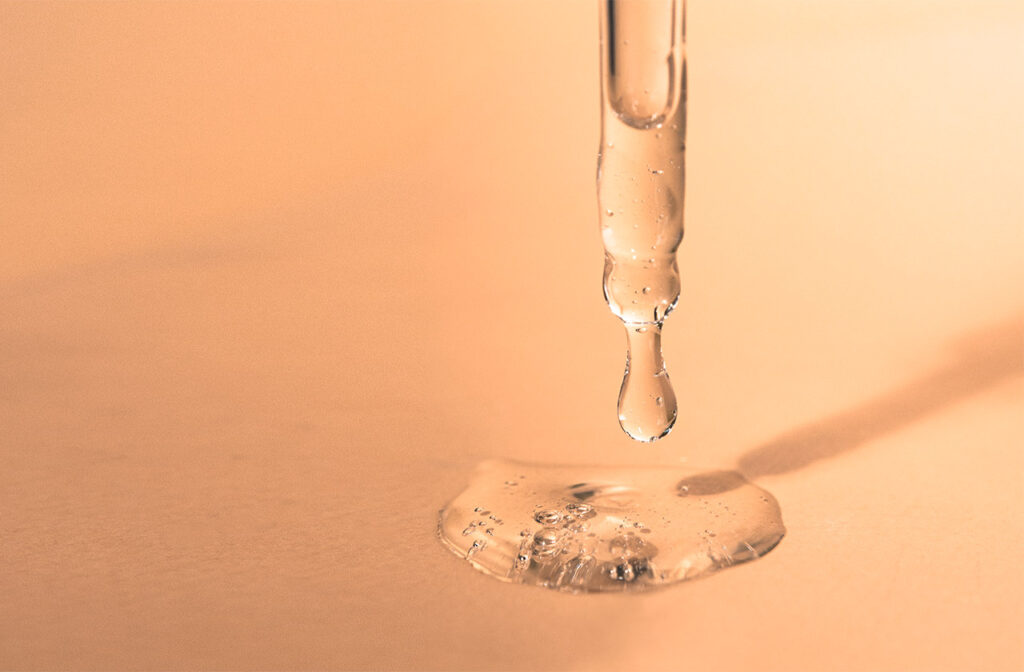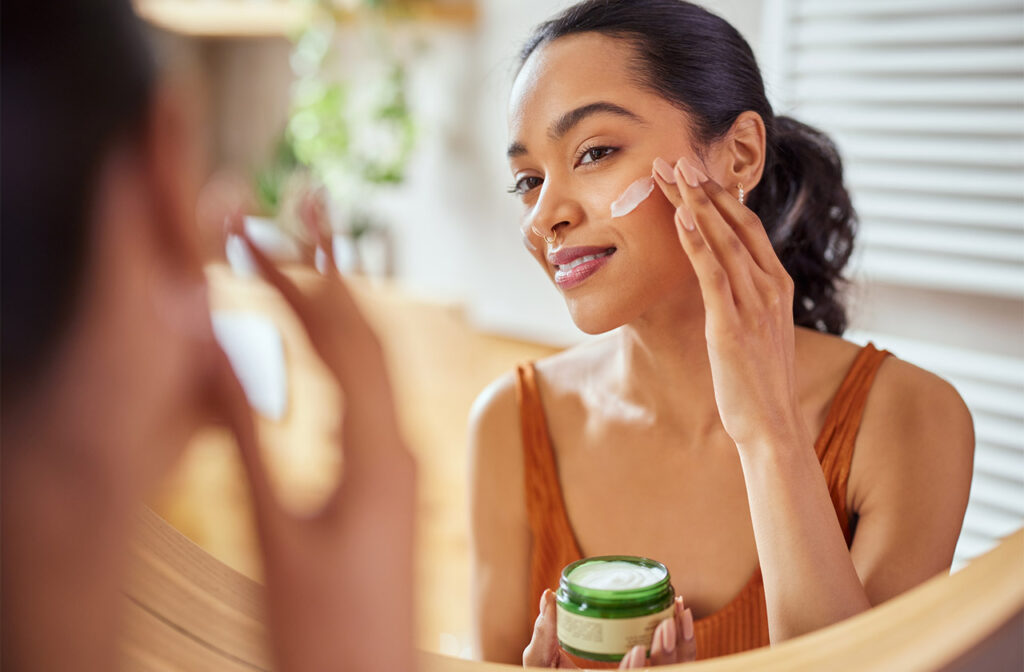In the quest for youthful, radiant skin, the power of peptides stands out in the realm of skincare science. Typically heralded in the form of peptide-rich creams and serums, these potent amino acid chains are celebrated for their ability to boost collagen production, diminish wrinkles, and restore elasticity to the skin. However, not all peptide sources are created equal. Snail mucin, a natural secretion from snails, is not only rich in peptides but also delivers a cocktail of vital nutrients and minerals that are transformative for skin health.
Snail mucin naturally contains copper peptides, renowned for their role in enhancing collagen synthesis and reducing the signs of ageing. Beyond peptides, snail mucin is packed with anti-inflammatory zinc, healing manganese, and a blend of antioxidants such as vitamins A and E, which protect against environmental damage and promote skin repair. This makes snail mucin an all-encompassing ingredient that offers more than just the typical benefits of synthetic peptides.
By integrating snail mucin into your skincare regime, you harness the synergy of natural peptides with other enriching nutrients, providing your skin with holistic nourishment and rejuvenation. In this article, we’ll explore how snail mucin, as a source of natural peptides and other skin-loving compounds, can elevate your beauty routine, making it simpler yet significantly more effective.
“Peptides can stimulate the body to generate collagen and elastin, two proteins that are involved in maintaining the structure of the skin, providing a firm, plump and smooth appearance.”
~ Dr Mary Sommerlad, Consultant Dermatologist
What Are Peptides and How Do They Benefit Your Skin?
Peptides are short chains of amino acids that are fundamental to the health and appearance of your skin. They act as building blocks for proteins such as collagen, elastin, and keratin, which are essential for maintaining the skin’s structural integrity and resilience. As we age, our natural production of these proteins diminishes, which leads to common signs of ageing such as wrinkles, sagging, and a loss of firmness.
The Role of Peptides in Skincare
In skincare, peptides are revered for their ability to communicate with skin cells, encouraging them to regenerate and repair. Here are some of the key benefits of peptides in skincare:
- Stimulating Collagen Production: Peptides signal skin cells to boost collagen production, which can help reduce the appearance of fine lines and wrinkles, providing a more youthful complexion.
- Enhancing Skin Barrier: Some peptides improve the skin’s barrier function, which protects against environmental pollutants and allergens that can damage the skin.
- Promoting Elasticity: By increasing the production of elastin, peptides help maintain skin’s elasticity, allowing it to stretch and bounce back more effectively, which is crucial for maintaining a taut appearance.
- Healing and Repair: Peptides can also accelerate the skin’s healing processes, making them beneficial for reducing redness and speeding up the recovery from skin damage.

Snail Mucin: A Natural Source of Peptides
While synthetic peptides are commonly added to skincare products, snail mucin offers a natural and potent source. Snail mucin contains copper peptides, which are especially known for their anti-ageing and healing properties. These natural peptides are integrated with other bioactive compounds such as glycolic acid, hyaluronic acid, zinc, and vitamins A and E, creating a multifaceted ingredient that not only boosts collagen and elastin but also moisturises, heals, and protects the skin.
Using snail mucin in your skincare routine means you’re applying a blend of natural peptides and complementary nutrients that work in harmony to enhance skin regeneration and protection. This holistic approach not only simplifies your skincare routine but can also provide superior results, leveraging the natural synergy of ingredients that are inherently designed to support each other.
“Chemically speaking, snail mucin is a complex mix of proteins, enzymes, hyaluronic acid, copper peptides, antimicrobial peptides, iron, zinc, and proteoglycans,” Smith says. Some of those, such as hyaluronic acid, may sound familiar if you’re well versed in skin care.”
~ Georgia Smith, Cosmetic Chemist
Peptides and Complementary Ingredients: Enhancing Skincare Synergies
While peptides are potent on their own, their effectiveness can be significantly enhanced when paired with other skincare ingredients. Understanding these synergies can help tailor skincare routines to address specific concerns more effectively. Below, we explore some of the most beneficial combinations of peptides with other active ingredients and discuss how these can be integrated into your daily skincare regime.
Vitamin C: Brightening and Firming
Combining peptides with Vitamin C can yield remarkable anti-aging benefits. Vitamin C is a powerful antioxidant that helps protect the skin from environmental damage while also brightening the complexion and evening out skin tone. When used with peptides, which boost collagen production, the result is a dual-action approach that not only firms and reduces wrinkles but also enhances the overall radiance of the skin.
Practical Tip: Look for serums that contain both Vitamin C and peptides, and apply in the morning to take advantage of Vitamin C’s antioxidant properties throughout the day.
Retinol: Intensified Anti-Aging
Retinol, a derivative of Vitamin A, is renowned for its ability to accelerate cell turnover and improve skin texture. When combined with peptides, the increased cell regeneration prompted by retinol helps the skin to make the most of the collagen-boosting properties of peptides. This combination can be particularly effective for mature skin looking to diminish the appearance of deep wrinkles and improve skin elasticity.
Practical Tip: Use retinol and peptide combinations in your evening routine, as retinol can increase sun sensitivity. Always follow up with a broad-spectrum sunscreen during the day.
Ceramides: Barrier Enhancement
Peptides help to strengthen the skin’s structural proteins, while ceramides work by reinforcing the skin’s barrier and locking in moisture. This combination is excellent for dry or sensitive skin that benefits from enhanced moisture retention and barrier repair. Together, peptides and ceramides can help maintain skin’s hydration, plumpness, and resilience against irritants.
Practical Tip: Choose a moisturiser that combines peptides with ceramides for nighttime use, ensuring that the skin’s barrier repair process is supported while you sleep.
Formulation Considerations
The effectiveness of peptides also depends significantly on the formulation of the product. Factors such as the stability of peptides, the concentration of active ingredients, and the pH level of the product are crucial. Peptides are generally most stable and effective in serum form, where they can be absorbed deeply into the skin without interference from too many occlusive agents.

Incorporating Peptide-Rich Serums Into Your Skincare Routine
Integrating peptide-rich serums into your daily skincare regimen is straightforward. Here are some tips to get the most out of these powerful products:
- Cleanse First: Always start with a clean face. Use a gentle cleanser to remove impurities and excess oils, which can create a barrier to absorption.
- Apply to Damp Skin: For best results, apply the serum to slightly damp skin. This can help the peptides penetrate more effectively, as moist skin is more permeable than dry skin.
- Layer Correctly: If you use multiple skincare products, apply your peptide-rich serum after toners and essences but before heavier creams or oils. This ensures that the peptides are not obstructed and can deeply penetrate the skin.
- Use Regularly: Consistency is key in skincare. Use your peptide serum daily, typically in the evening, to see gradual and sustained improvements in skin texture and elasticity.
- Sun Protection: Since some peptides can increase skin sensitivity, it’s crucial to follow up with a broad-spectrum sunscreen during the day to protect against UV damage.
“The longer you give peptides time to work on your skin, the more benefits you’ll reap.”
~ Melanie Rud
How to Choose the Right Peptide-Rich Serum
Choosing the right peptide-rich serum involves more than just picking a well-reviewed product; it requires understanding the formulation specifics and how they cater to your skin type and concerns. Here are some key factors to consider when selecting a peptide-rich serum:
Ingredient Concentration
The concentration of peptides in a serum determines its potency. Look for serums where peptides are listed near the top of the ingredient list, which indicates a higher concentration. However, more is not always better. High concentrations can be potent but might cause irritation for sensitive skin types, so always consider your skin’s tolerance.
Product Formulation
Peptides need to be properly formulated to penetrate the skin effectively. A good serum should have a lightweight, easily absorbable consistency. It should also be packaged in a way that protects the integrity of peptides from degradation by light and air—opaque, airless pumps are ideal.
Skin Type Considerations:
- For Oily Skin: To meet the needs of oily skin, choose a serum that’s non-comedogenic and oil-free to avoid clogging pores.
- For Dry Skin: Look for formulations that include hydrating ingredients, such as hyaluronic acid, alongside peptides.
- For Sensitive Skin: Opt for serums that are fragrance-free and contain soothing ingredients like aloe vera or allantoin, in addition to peptides.
Specific Skin Concerns:
- Aging Skin: Look for serums combining peptides with antioxidants like vitamin C or retinol to target wrinkles and loss of firmness effectively.
- Dull Skin: Select a serum with brightening ingredients such as vitamin C or niacinamide to complement the peptides’ skin-rejuvenating properties.
- Acne-Prone Skin: Ensure the serum includes anti-inflammatory components like zinc or tea tree oil, which can help manage breakouts alongside the peptides’ healing effects.
In conclusion…
Throughout this discussion, we’ve explored the significant benefits that peptide-rich serums can offer to those seeking to rejuvenate and revitalise their skin. Peptides are vital for stimulating collagen production, enhancing skin elasticity, and accelerating repair, which collectively contribute to a more youthful and vibrant complexion. When these powerful peptides are combined with the natural bounty of snail mucin, their effects are not only complemented but significantly amplified.
Snail mucin naturally enriches these serums by adding its unique blend of healing and nurturing ingredients. It brings peptides, glycolic acid, hyaluronic acid, and a wealth of vitamins and minerals that further the anti-ageing and skin-repair benefits of peptide serums. Together, this combination provides a powerhouse of skincare benefits, ensuring deep hydration, improved healing, and increased overall skin resilience against signs of ageing.


